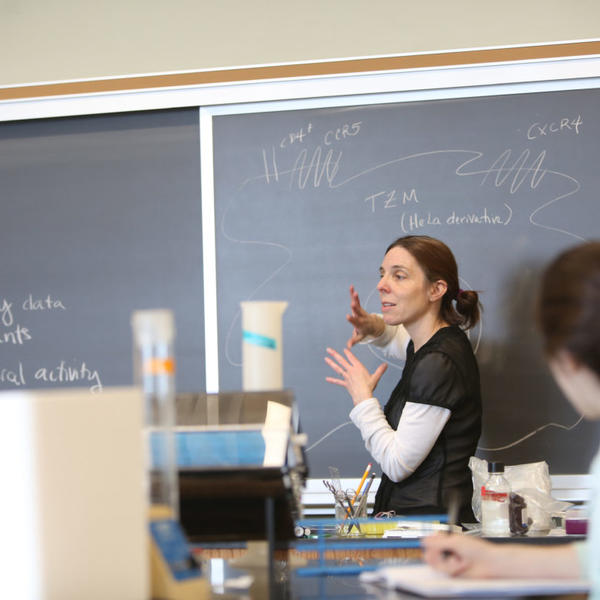The U.S. Food and Drug Administration has recently approved a vaccine from Johnson & Johnson for emergency use against the COVID-19 virus. But how does this option differ from the other vaccines currently on the market?
In an interview with NBC Boston, Ann Sheehy, virologist and professor of biology at the College of the Holy Cross, explains how this third authorized vaccine works and explores the differences between it and the Moderna and Pfizer vaccines that are already in use.
According to Sheehy, whose research focuses on the cellular immune response to retroviruses, the Johnson & Johnson vaccine offers some clear advantages over its predecessors. "You just give them that one injection, you don't have to sit down and schedule that second visit, and the cold chain doesn't have to be maintained," says Sheehy.
But regardless of the differences in the three options, Sheehy says that the Johnson & Johnson vaccine comes at a pivotal time in the fight against the coronavirus. "Another vaccine in the mix is going to make getting everybody vaccinated that we need to be vaccinated much easier and faster."
To view the segment, go to NBCBoston.com.
For assistance scheduling an interview with Professor Ann Sheehy or for additional information on our faculty experts, please contact Nicoleta Jordan at njordan@holycross.edu.
How Does the Johnson & Johnson COVID-19 Vaccine Compare to the Others? Holy Cross Biology Professor Explains

NBC Boston | NECN | WBUR | WGBH
Read Time
1 Minute

